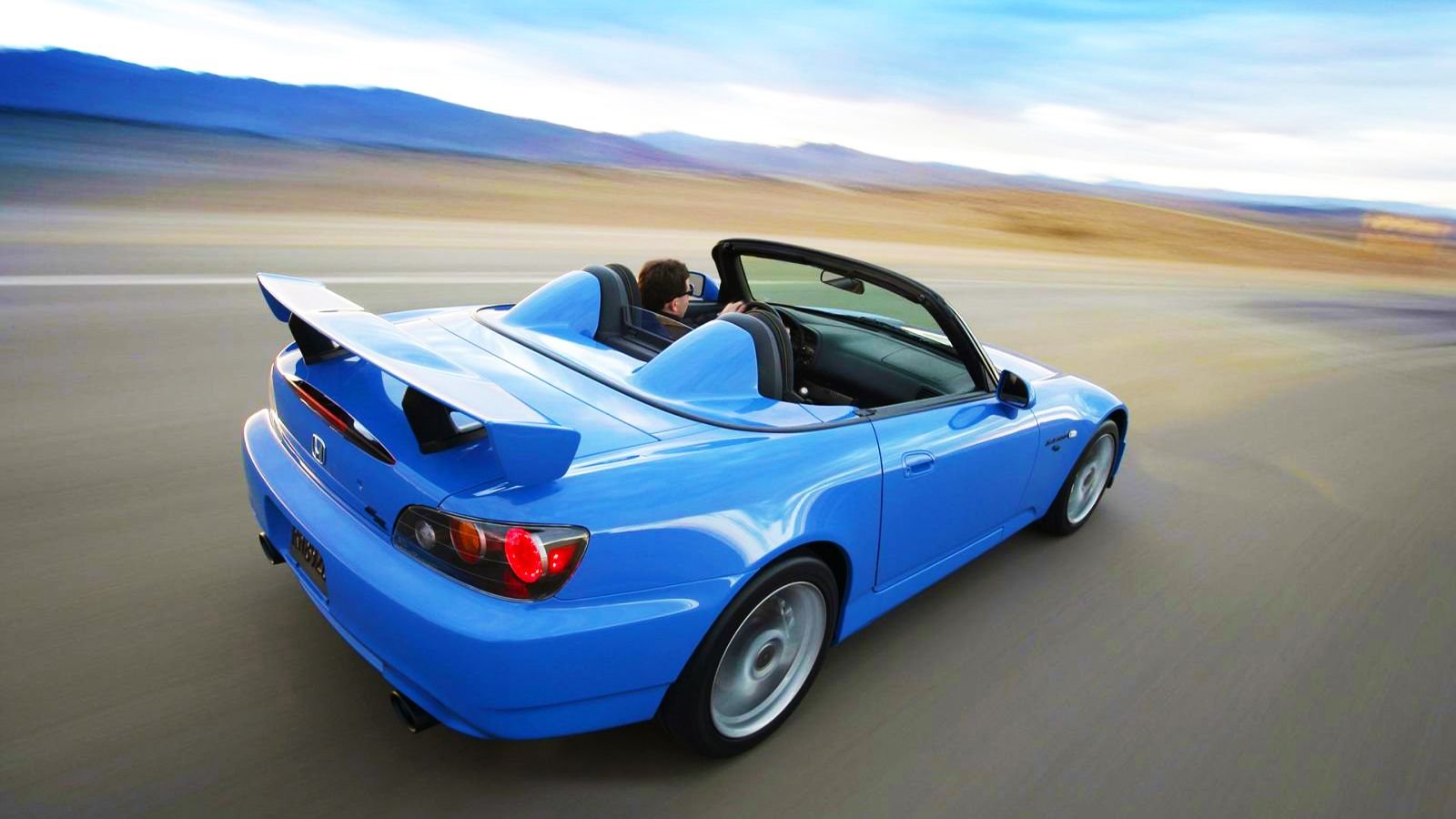Daily Slideshow: How the S2000 Was Built with Proof in the Pudding
Honda's S2000 roadster stood out on the road for one good reason. Honda did not compromise to make it less sporty and more practical. Here are some of the ways they showed their dedication to sport.














Quick, High Revving Motor
A piston in the 2003 S2000 has a peak speed of 4906 feet per minute at the 8900 RPM redline, compared to the 4890 feet per minute piston speed of a Ferrari Formula One racer, at 18,000 RPM, just a few years earlier. That alone should convey the fact that the S2000 was operating outside of the normal neighborhoods of a typical economy car 4 cylinder. Honda has always been all about making power with revs, since its beginning in the motorcycle realm, and the S2000 was given a motor that will willingly run to redline and sound sweet doing it.
Dedicated Rear-wheel Drive Platform
Most modern cars have gone from rear-wheel drive to the more easily packaged front-wheel drive drivetrain. Honda, on the other hand, had to engineer an entirely new platform and driveline to accommodate a longitudinally mounted engine and rear wheel drive. Keeping the drive at the back maximizes the vehicle's acceleration and handling, at the cost of a perceived lack of foul weather traction. With RWD you can use the throttle to steer you through corners, or if you really want, drift through them.
Minimal Interior Space and Storage
Anyone who owns an S2000 would probably tell you the roadster wouldn't be their first choice for a camping trek or trip to Costco. The S2000 only offers a minimal amount of storage space for groceries and luggage. This would be considered a big negative for the mostly daily driver, but Honda did this on purpose to discourage buyers who were just looking for a sporty car, not a sports car. The designers didn't want drivers tossing a couple hundred pounds of crap in the trunk, and ruining the handling in the name of buying more save more.
The High X-Bone Frame
The "High X-bone" design of the S2000 was first conceived in 1995 for a special concept car. While the S2000 would change and adapt the concept for mass-market production, the underlying structural design would carry over to the roadster we know and love. The X-bone was designed with safety and rigidity in mind. While the S2000's style is arguably distinctive on its own, the skeleton underneath sets the S2000 apart from all of its competitors. The innovative design is not only great for torsional strength, it also ensures that weight is distributed as evenly as possible, making the car a sweet handler.
Distinctively Quick Handling
Honda would actually go on to scale back the sharp handling in later years of the S2000, resulting in more accessible "stable" handling. As it happens, a lot of early S2000 owners were overdriving the car, getting in over their heads, and finding themselves parked in ditches! We can debate whether it was ultimately a sound business decision for Honda to reel it back a bit, but the quick handling has always set the S2000 apart from other more sedate mass-market sports cars.
Strickly DIY Shifting
Perhaps the biggest way Honda refused to compromise on the S2000 was when they refused to offer it with an automatic transmission. If you want to drive this roadster, you need to be responsible for what gear it is in at all times. If you can't drive a stick, forget it, move along poser. Ford has plenty of automatic-equipped Mustang convertibles for you to profile around the shore in.
Slight, Minimal Body
In some ways, the Honda S2000 is the opposite of the typical American muscle car. The S2000 looks to have been designed by putting 4 wheels, 2 seats, and an engine together on the floor, and drawing lines around them to enclose them in the smallest, simplest body possible. There are no extraneous bulges, fake scoops, air vents that lead nowhere, or overdone chrome and character lines. In fact, going back to #2, this is part of the reason it has so little storage or trunk space.
